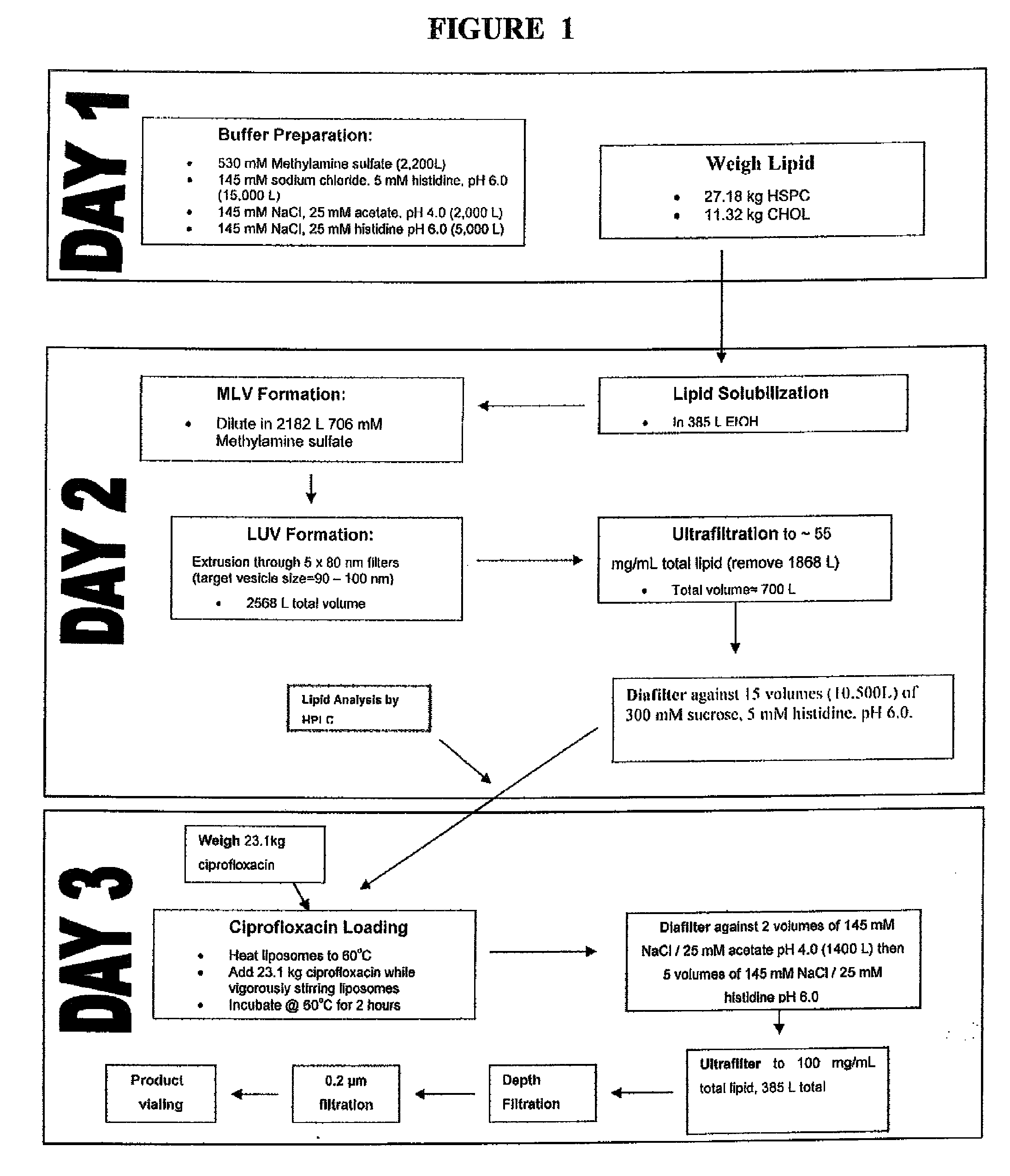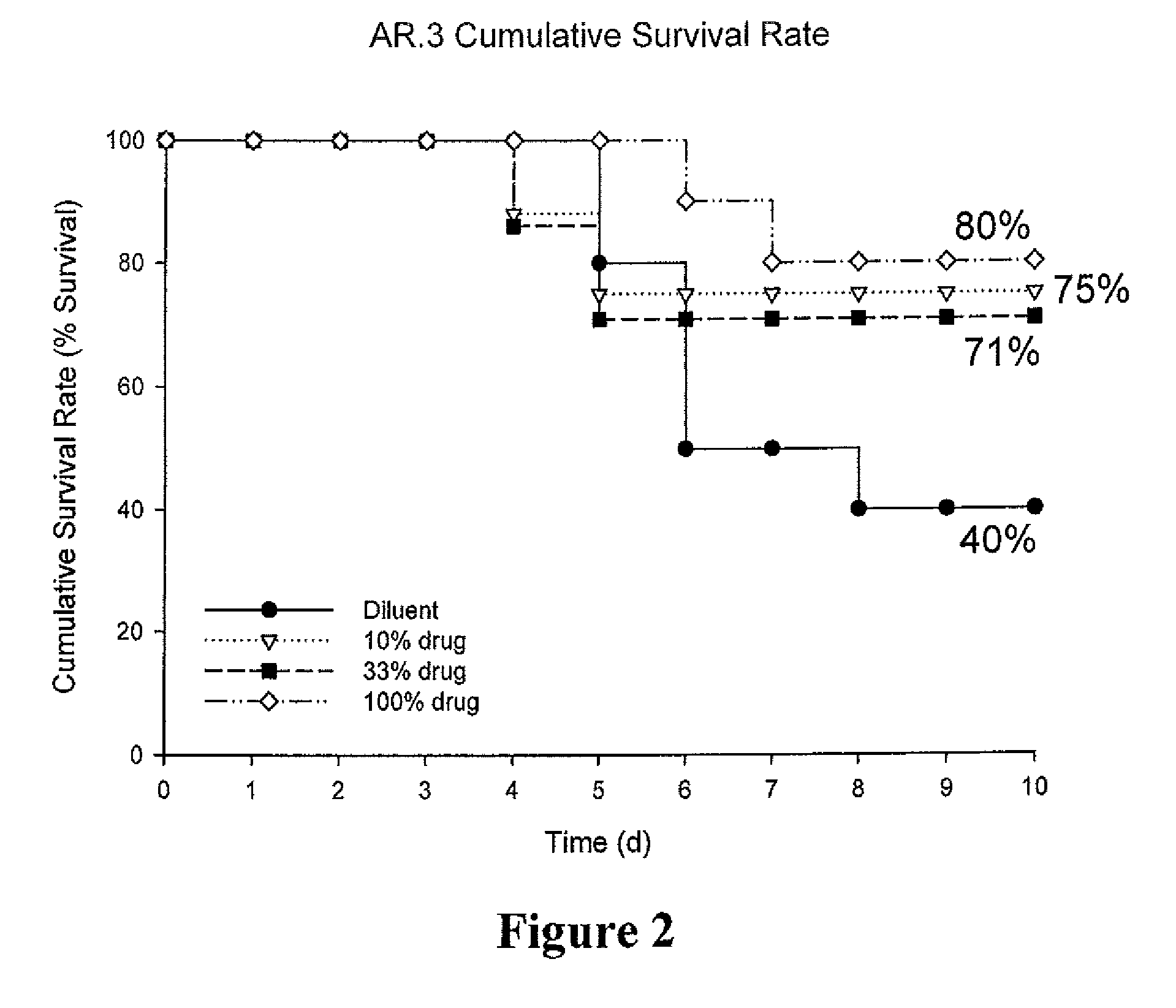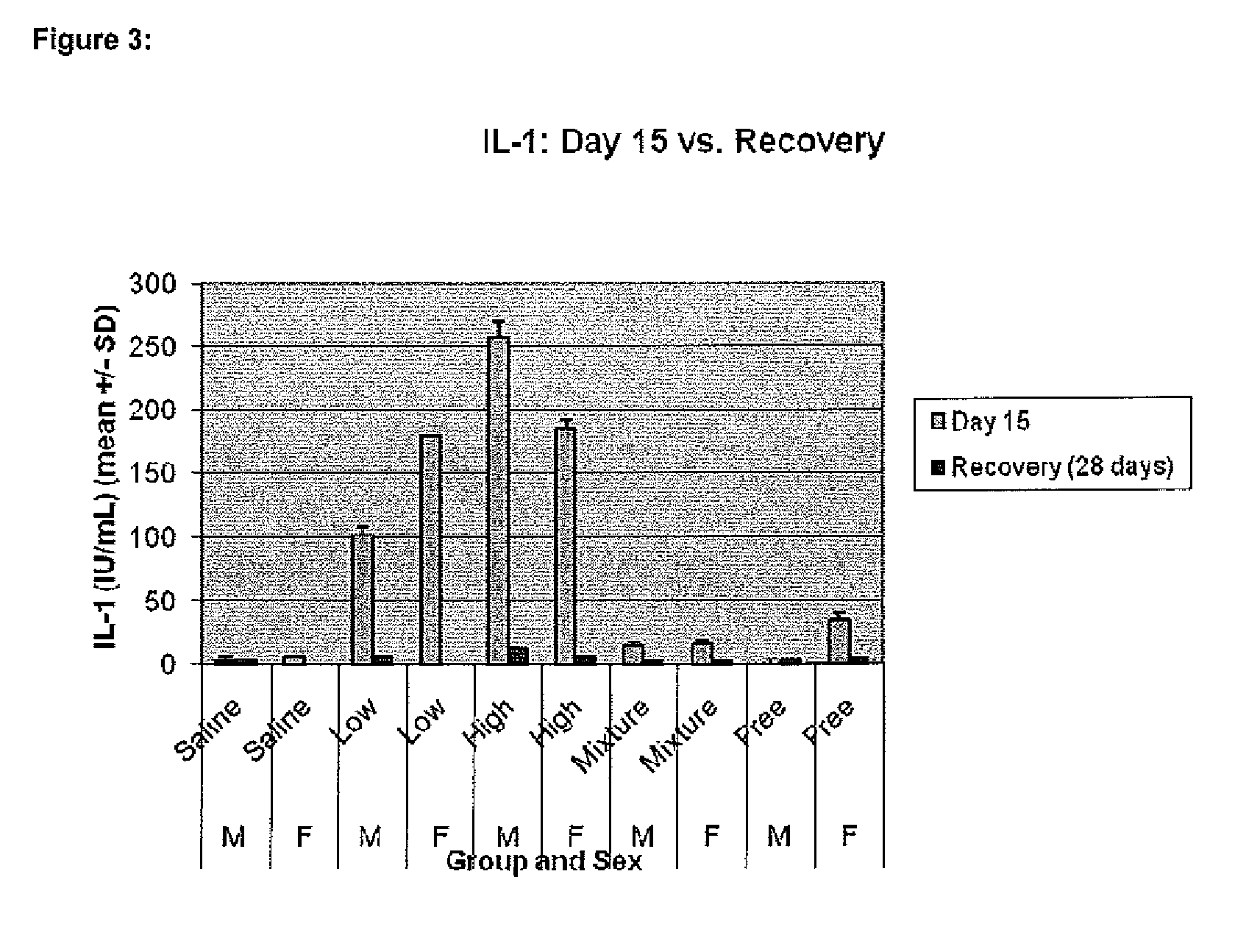Dual action, inhaled formulations providing both an immediate and sustained release profile
a formulation and inhalation technology, applied in the direction of drug compositions, aerosol delivery, spray delivery, etc., can solve the problems of increased risk of serious illness or even death, and increased treatment burden and cost, so as to achieve sustained release of anti-infective over time, suppress growth rate, and high therapeutic level of anti-infective
- Summary
- Abstract
- Description
- Claims
- Application Information
AI Technical Summary
Benefits of technology
Problems solved by technology
Method used
Image
Examples
example 1
Manufacture of Encapsulated Ciprofloxacin:
[0108]Ciprofloxacin (50 mg / mL) is encapsulated into liposomes consisting of hydrogenated soy phosphatidyl-choline (HSPC) (70.6 mg / mL), a semi-synthetic fully hydrogenated derivative of natural soy lecithin (SPC), and cholesterol (29.4 mg / mL). The lipid is organized in a bilayer, with an average particle size of 75 to 120 nm. The sterile suspension is suspended in an isotonic buffer (25 mM histidine, 145 mM NaCl at pH 6.0, 300 mOsm / kg) and administered by inhalation. These liposomal ciprofloxacin preparations contained approximately 1% unencapsulated ciprofloxacin.
[0109]The manufacturing process includes the following steps.[0110]1. Preparation of buffers.[0111]2. Weighing of lipid components.[0112]3. Dissolution of lipids in solvent (tBuOH:EtOH:dH2O / 49:49:2).[0113]4. Mixing of the solvent solution of lipids with methylamine sulphate buffer (10% v / v solvent) to form multilamellar vesicles (MLVs) with encapsulated methylamine sulphate buffer a...
example 2
[0133]Preparation of Unencapsulated Ciprofloxacin: A solution of unencapsulated, or “free” ciprofloxacin at a concentration of 30 mg / mL in 10 mM sodium acetate, pH 3.2, was prepared.
[0134]Manufacture of encapsulated ciprofloxacin: Ciprofloxacin (50 mg / mL) was encapsulated into liposomes consisting of hydrogenated soy phosphatidyl-choline (HSPC) (70.6 mg / mL), a semi-synthetic fully hydrogenated derivative of natural soy lecithin (SPC), and cholesterol (29.4 mg / mL), as described in Example 1. Characterization of this liposomal formulation indicated that approximately 1% of the ciprofloxacin was free; that is, it was not encapsulated within the liposome.
[0135]Description of infection model: Formulations containing free ciprofloxacin and liposome encapsulated ciprofloxacin were evaluated in two additional experiments in a mouse model of P. aeruginosa lung infection as described in Example 1.
[0136]Design of dose-ranging study: One dose of the combination of free and liposomal ciprofloxac...
example 3
[0140]Manufacture of encapsulated ciprofloxacin: Ciprofloxacin (50 mg / mL) was encapsulated into liposomes consisting of hydrogenated soy phosphatidyl-choline (HSPC) (70.6 mg / mL), a semi-synthetic fully hydrogenated derivative of natural soy lecithin (SPC), and cholesterol (29.4 mg / mL), as described in Example 1. Characterization of this liposomal formulation indicated that approximately 1% of the ciprofloxacin was free; that is, it was not encapsulated within the liposome.
[0141]Delivery of Combination of Free and Encapsulated Ciprofloxacin: Rather than using a formulation which contains both free and encapsulated ciprofloxacin, an alternative method is to create the mixture during the delivery event. For example, the addition of shear or heat in a controlled fashion may reproducibly result in some of the liposomes losing their integrity and releasing the contents of drug that were previously encapsulated within the liposomes. Studies using the electromechanical AERx system confirmed...
PUM
| Property | Measurement | Unit |
|---|---|---|
| particle diameter | aaaaa | aaaaa |
| diameter | aaaaa | aaaaa |
| diameter | aaaaa | aaaaa |
Abstract
Description
Claims
Application Information
 Login to View More
Login to View More - R&D
- Intellectual Property
- Life Sciences
- Materials
- Tech Scout
- Unparalleled Data Quality
- Higher Quality Content
- 60% Fewer Hallucinations
Browse by: Latest US Patents, China's latest patents, Technical Efficacy Thesaurus, Application Domain, Technology Topic, Popular Technical Reports.
© 2025 PatSnap. All rights reserved.Legal|Privacy policy|Modern Slavery Act Transparency Statement|Sitemap|About US| Contact US: help@patsnap.com



